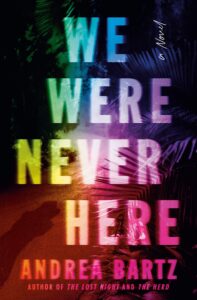In 2018 the Staunch Book Prize launched, recognizing thrillers in which no woman is beaten, stalked, sexually exploited, raped or murdered. It’s a noble cause; in domestic and psychological suspense (the cloistered, relationship-driven genres I myself write in), the victims of violence tend to be female. I understand the impulse to center books that don’t leverage gratuitous female pain as a plot point. (Picture the central dead body in the heralded Mare of Eastown: a nubile young women woman stripped naked and splayed over the rocks, orbited by a wolfpack of potential male killers.)
But there’s a reason none of my thrillers qualify.
In reality, women are more likely to be the victims of these kinds of crime. We’re more than three times as likely as men to be stalked during our lifetime; over a million women are stalked every year in the US. We’re more likely than men to experience “severe intimate partner physical violence [and] intimate partner contact sexual violence.” And while the number of male victims of violent crime has decreased steadily nationwide since 2005, the number of female victims just keeps ticking up. I hate this reality, but I keep funneling my own (founded) fears into stories of women facing their nightmares.
And in fact, sometimes I let them fight back.
Here’s the thing. I’m done talking about “violence against women.” I’m even done with calling it by its clearer, plainer name: “male violence.” I want to talk about female violence. Lady killers. Badass boss bitches who take justice into their own hands. Women who leverage their gender to get away with it—because, without testicles, they simply must not have the balls to do it, right?
In We Were Never Here, two globetrotting besties fight off a would-be rapist and kill him in the process, then ditch the body and head home…not once, but twice. The book started off as a revenge fantasy of sorts, a way to turn the tables and reclaim power and highlight the violence we heap on women without even conceiving of them dishing it back. You know what they say about women walking alone at night…and it’s not, “you should give them a wide berth, lest your own safety be threatened.”
I’m not the only thriller author who refused to turn a blind eye to the reality of violence against women—a number of female writers I adore also turned the cliche on its head by making women the cruel ones. Witness They Never Learn by Layne Fargo, where a wily female professor cleans up her campus by offing abusive men. Check out My Lovely Wife by Samantha Downing, in which a husband waxes poetic about his brilliant, fire-haired, murderous spouse. Peep My Sister, the Serial Killer by Oyinkan Braithwaite, wherein a sister gathers bleach and rubber gloves and helps her sister rid herself of yet another cadaver. I’m loving the unhinged-women canon (We Were Never Here included) where a ferocious female lead isn’t the victim or even the surprise whodunit—she’s the perpetrator, the one causing violence, the one others should fear. She’s often the protagonist, and at minimum she’s a complex powerhouse, feared and revered in equal measure. She’s terrifying. She’s fearless. I love her.
I’m not advocating for female violence (although, Christ, it wouldn’t be unfounded… as Jeff Tiedrich tweeted on the day Cosby walked free and Britney’s conservatorship was upheld, we women “are showing great restraint in not burning everything to the f*cking ground right now”). Instead I’m cheering on books that shine a light on our knee-jerk assumption that women should always be afraid.
Enough well-meaning bullshit about how college girls should go out in groups and watch their friends to prevent rape. Enough lengthy checklists of precautions female travelers must take to stay safe. Sometimes I want to picture a world where women aren’t the victims. We need to not be OK with women scurrying around, keys clutched like brass knuckles, doing their best to avoid the inevitable violence pelting them from all sides. Until then—until we can teach our fellow man to stop harming women—I’m happy to escape into fictional settings where women, for once, wield the power.
***


















